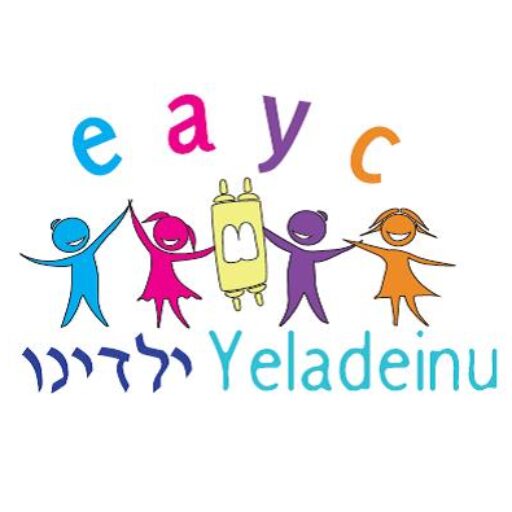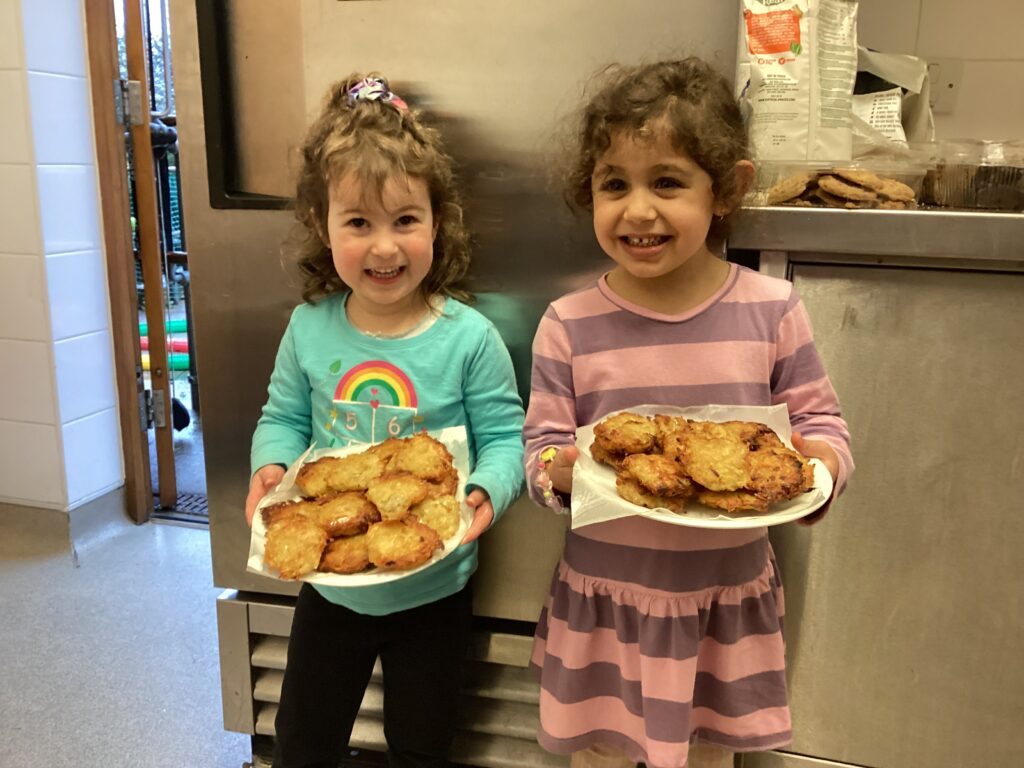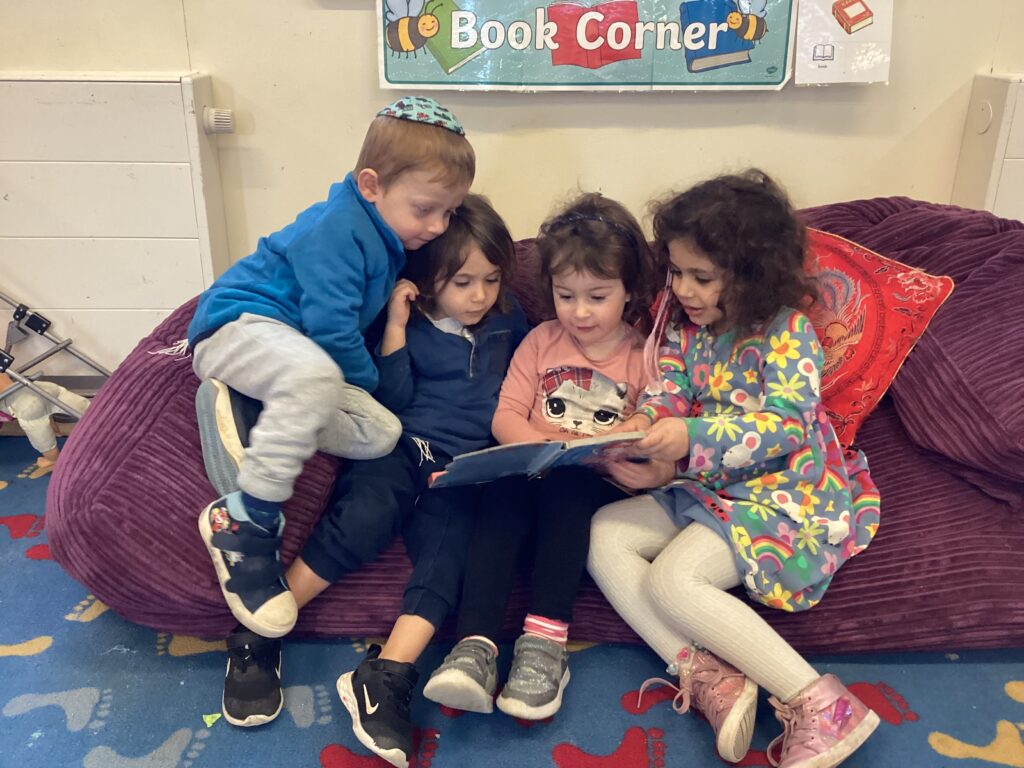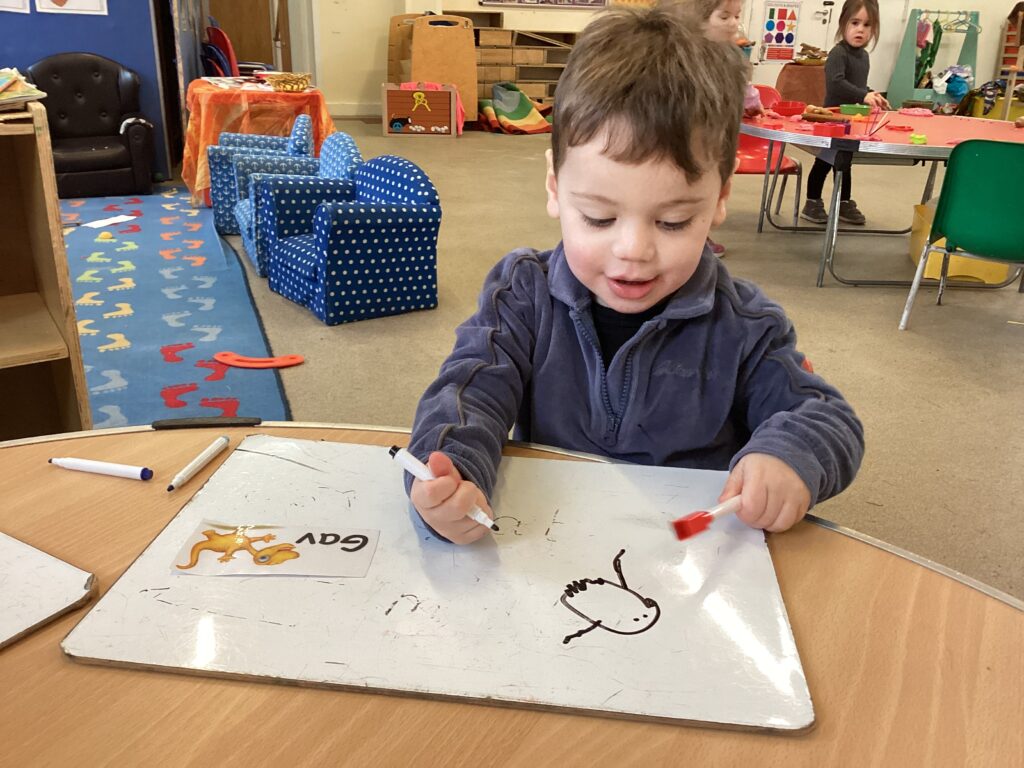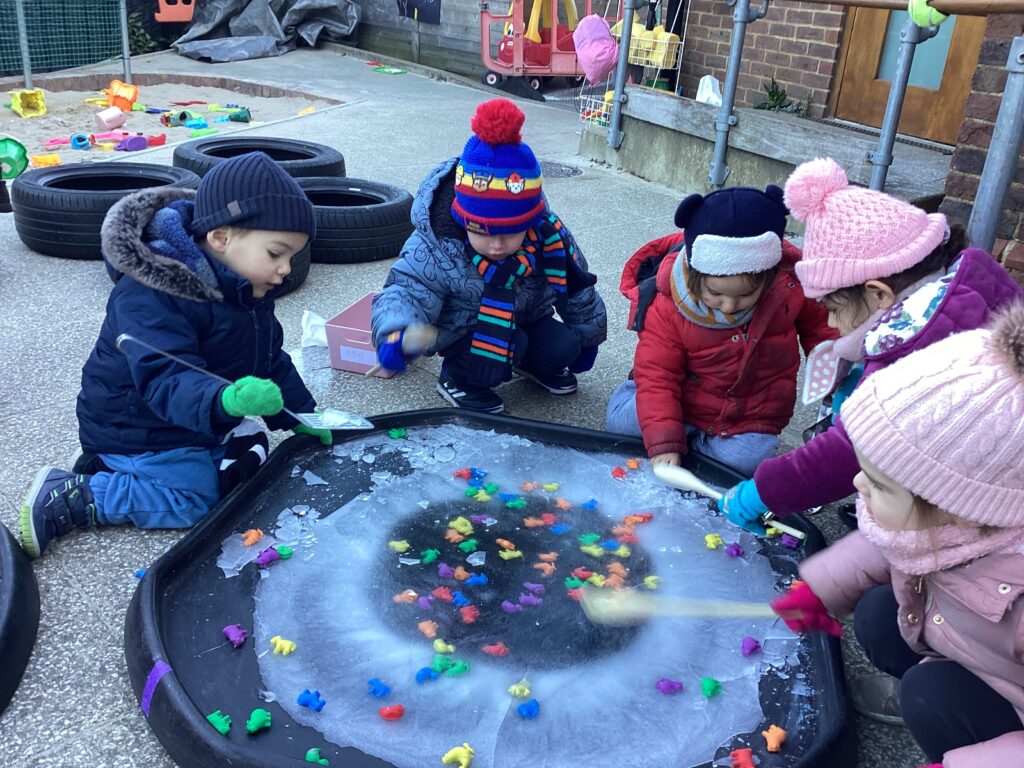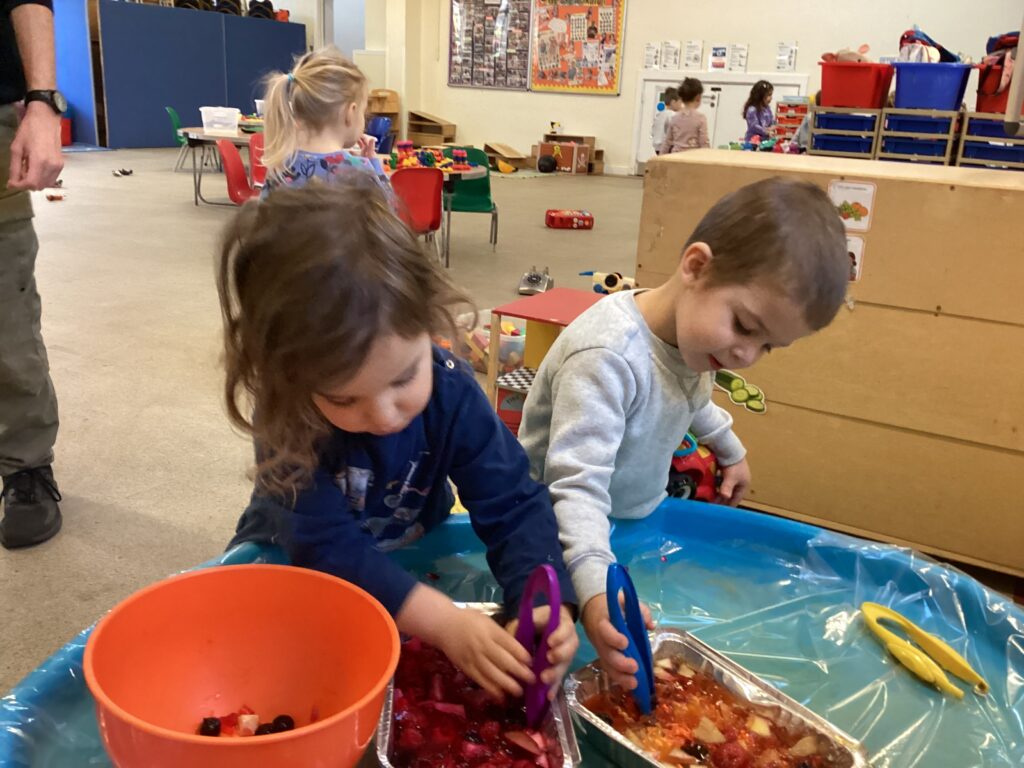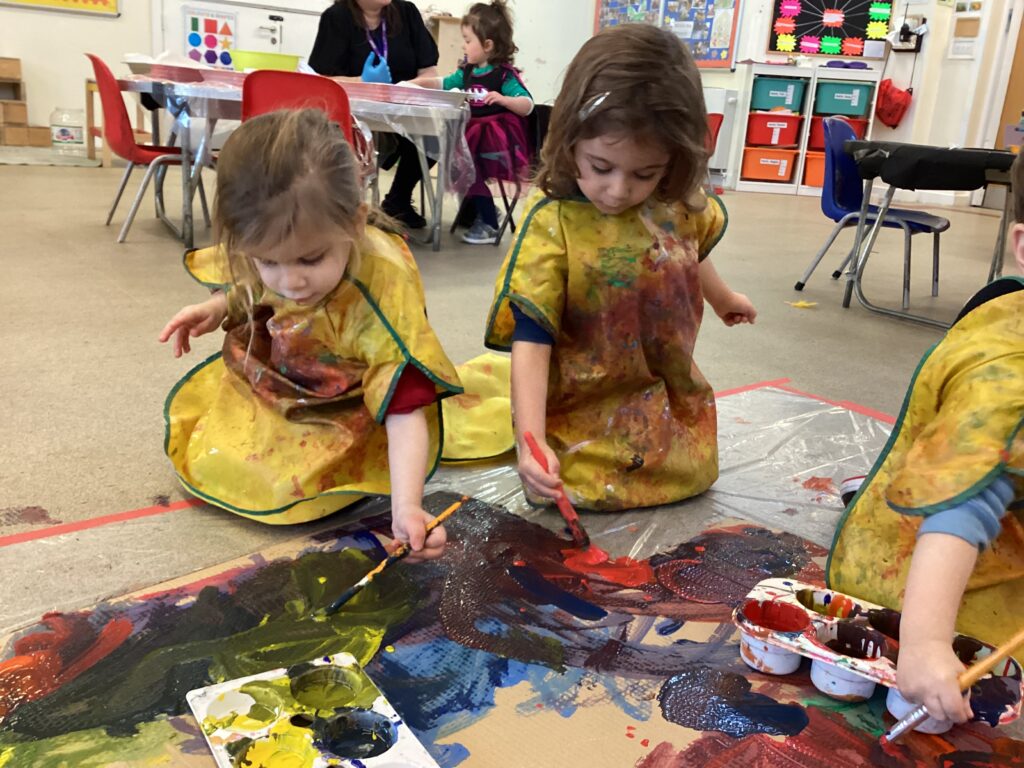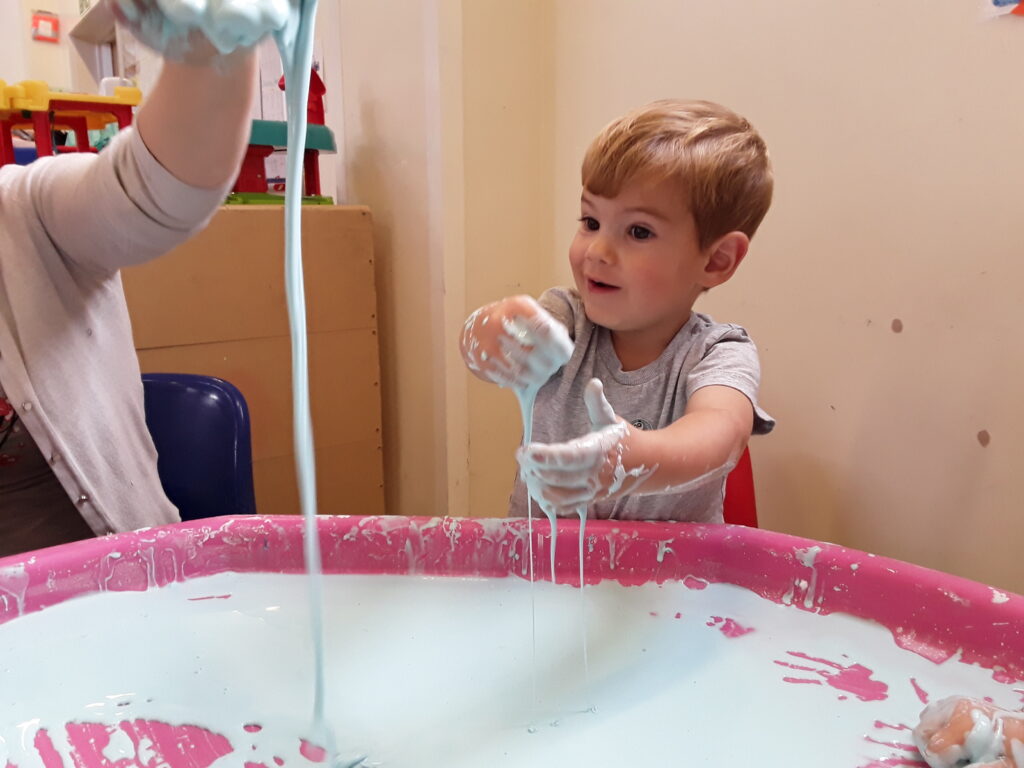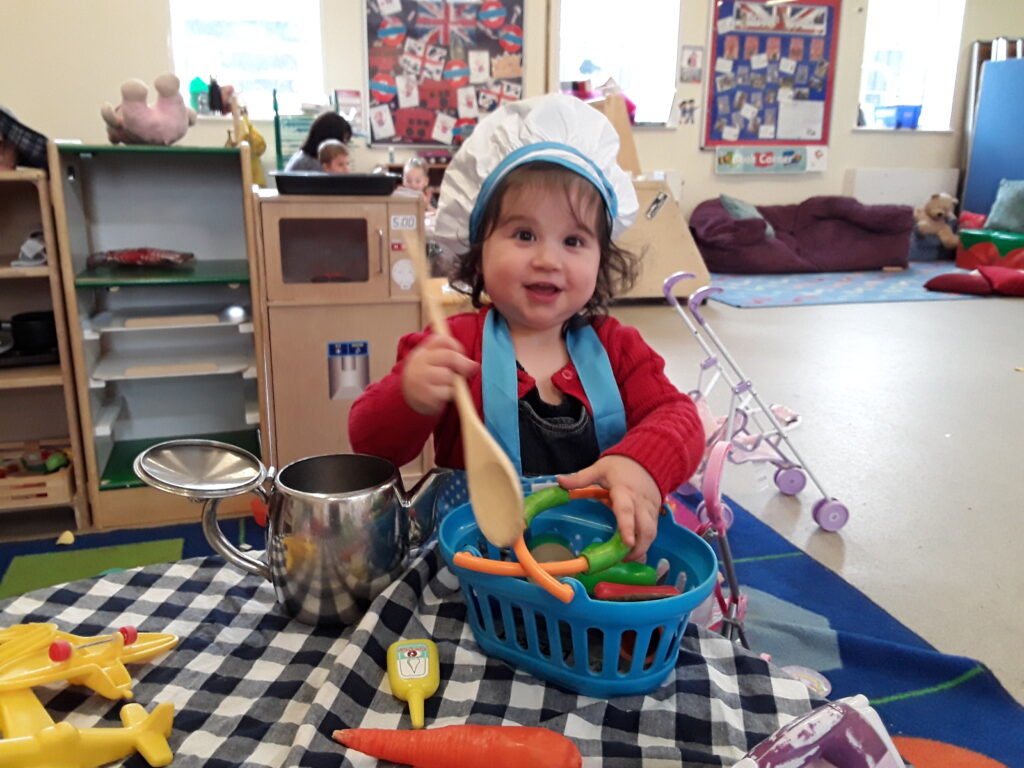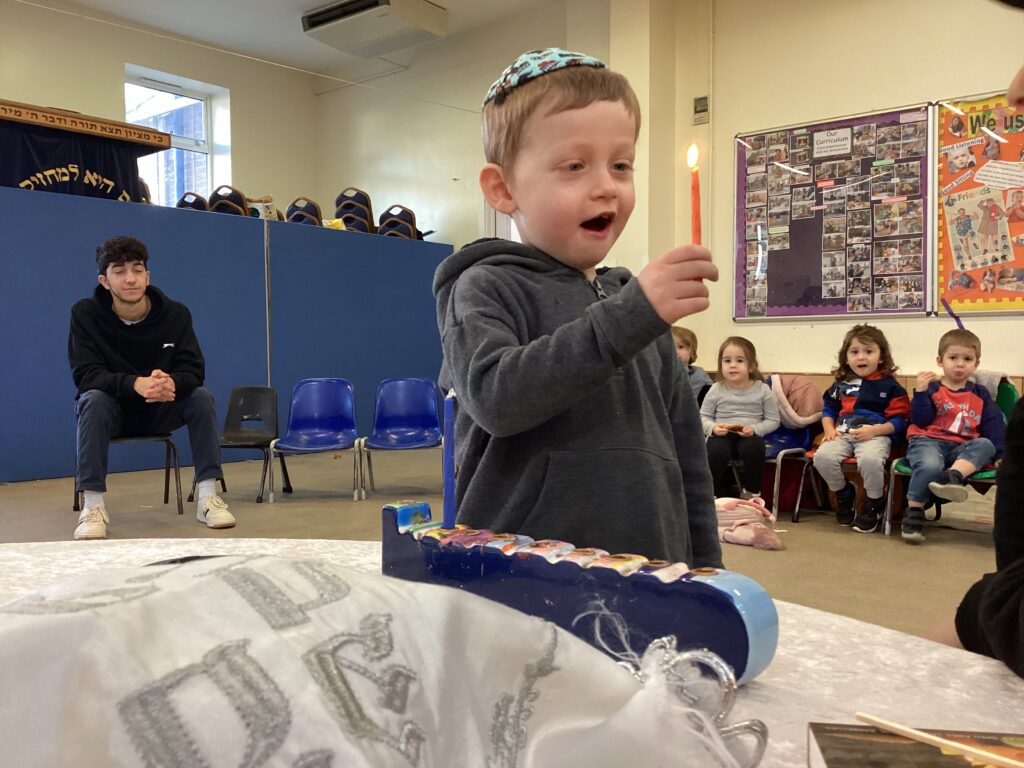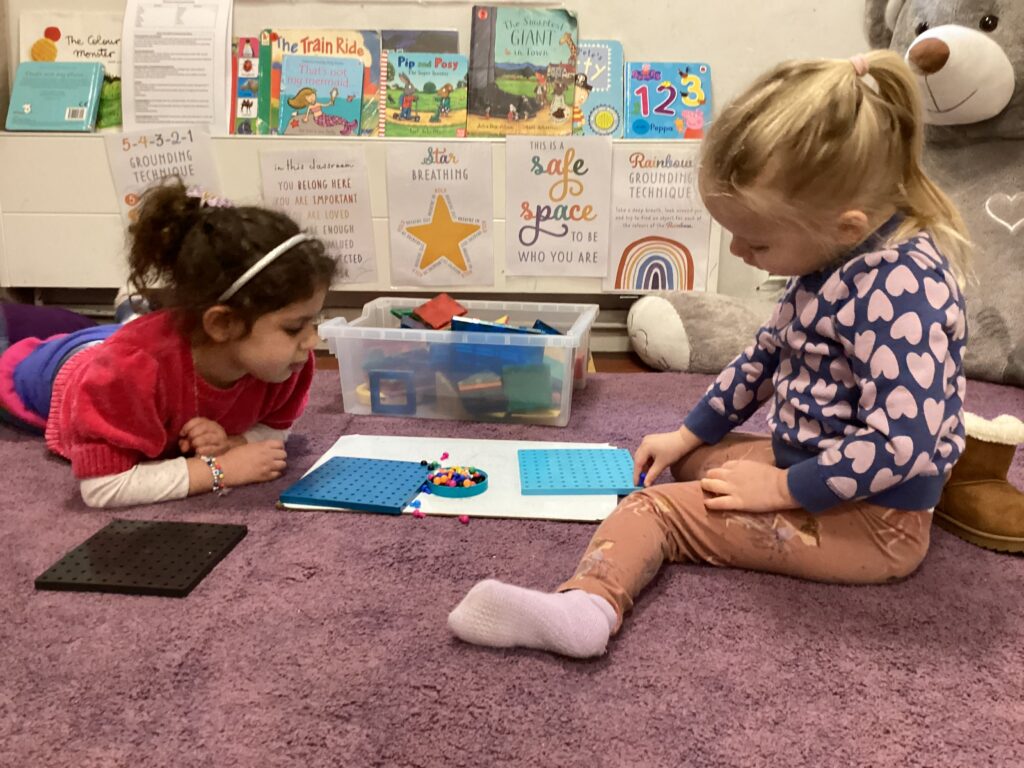EYFS AT
EAYC YELADEINU NURSERY
EAYC Yeladeinu Nursery Curriculum
We are the EAYC Yeladeinu Nursery in the heart of the Jewish community in Edgware.
We aim to provide a warm and loving environment for our 2-4 year olds to feel safe and be able to thrive. We encourage our children to be happy and motivated so that they can achieve their personal best in the areas they choose. Each child is an individual, we value them for their uniqueness and talents, challenge them to explore and grow while supporting them by learning through play.
Our environment is based in the main hall of the Shul and is separated into different areas to support the 7 areas of learning. We also have a smaller classroom downstairs which we use for small circle groups and speech and language groups. The main room can get very busy so the children enjoy using the quieter classroom downstairs.
In order to teach our children to self-regulate and have an understanding of managing their emotions we have a sensory room to use, which is a very cosy environment with cushions, teddies, books and sensory toys.
One of our main aims is focusing on the children’s personal, social and emotional development, teaching them to be resilient and enabling them to bounce back when they run into challenges.
We use our sensory room on a daily basis to help children self-regulate and learn to express themselves, using stories and puppets when they are feeling angry or upset. We have found that using the sensory room has had a really positive impact and helps children through difficult times, e.g settling into nursery, a new baby at home or moving house etc.
Children at this age are busy forming friendships, sharing and learning different strategies of play, co-operation and functioning within a group. We encourage turn taking using small groups of 4/5 children, playing games and structured activites.
Another important focus for us is children’s speech and language. We know that Speech and language development plays a crucial role in the overall development of 2-3-year-olds. It is a primary way for them to express themselves and as they learn to communicate, it helps reduce frustration and tantrums because they can convey their needs and feelings more effectively.
We take pride in our large book corner, sharing stories together with the children and using our story sacks to expand on stories too. The children really enjoy this area and you will often find them sitting on the couches looking though books on their own.
We focus on a book each week and also recommend it to parents on our weekly newsletter.
We strive to teach our children Makaton and teach them at least 2 new signs each week. Makaton is so important for young children, it provides them with a means of communication before they develop full speech abilities. This is particularly beneficial for children who may face speech or language delays, enabling them to express their needs and thoughts.
We believe that visuals play an important part in children’s language development and all the staff wear visual aid lanyards to support the children.
Our daily routine comprises a blend of activities that are both adult-led and child-led. We consistently initiate our activities with a designated topic for the week. We further expand upon these topics by tailoring them to the specific interests of the children. If we notice that a particular topic resonates well with the children and captures their enthusiasm, we often prolong our focus on it, incorporating additional activities related to the chosen theme.
We encourage our children to be independent throughout the day. When children start in the morning they do a self-register, where they take their name off the board and post it in the letter box, they then go and hang up their coat and empty the contents of their bag into their tray.
We encourage children to wash their own hands throughout the day, pour their own cup of milk at snack time and serve themselves seconds of lunch if they want. They also learn to go to the toilet independently.
Parent partnerships are key to a successful early years’ experience for the children as well as for them to gain the most out of their early education and reach expected levels of development.
There are different ways parents can connect with the staff such as at the front door at drop-off and pick-up times, email and phone call, two-way conversation through Seesaw (The child’s online journal) and termly report meetings. Parents can also write a message to their child’s key worker in the link book.
We have also started something new where we take photos of all the activities that we have put out for that day and upload it to the parents whatsapp group. The parents have absolutely loved seeing the photos and we’ve had really good feedback from them with most saying it really helps them start up a conversation with their child about what they have done at nursery that day.
